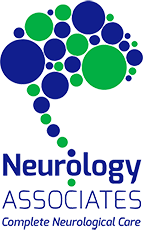Leesburg Neurologist Discusses Frontotemporal Dementia
Frontotemporal dementia is an umbrella term for a group of uncommon brain disorders that affect the frontal and temporal lobes of the brain. These are the areas of the brain that are generally associated with personality, behavior, and language.
According to the Association for Frontotemporal Degeneration, frontotemporal dementia is the most common form of dementia for people under the age of 60 and is estimated to represent 10%-20% of all dementia cases. (https://www.theaftd.org/what-is-ftd/disease-overview/)
Leesburg, VA neurologist, Dr. Sarbjot Dulai, discusses frontotemporal dementia – what it is, what causes it, and the signs and symptoms of the disorder.
What is Frontotemporal Dementia?
Frontotemporal dementia, also known as frontotemporal degeneration, frontotemporal lobar degeneration, or Picks Disease; is characterized by the progressive shrinking of several different areas of the brain. Particularly, the frontal and temporal lobes, which control functions such as decision making, personality, social behavior, and language.
The disease causes changes in behavior, personality, language, motor skills, and a deterioration in a person’s ability to function.
Frontotemporal dementia is distinct from other forms of dementia, such as Alzheimer’s, in 2 important ways. First, the onset typically occurs between the ages of 40 to 65, which is close to a full 10 years before the average Alzheimer patient is diagnosed. Sometimes because the patient is considered “too young” for dementia to be considered, frontotemporal dementia is often initially misdiagnosed as a psychiatric problem, or a movement disorder such as Parkinson’s Disease.
Secondly, as the disease progresses over the course of 2 to over 20 years, these deficits cause significant impairment in social and occupational functioning, thus causing an increased dependency on caregivers.
What Causes Frontotemporal Dementia?
In frontotemporal dementia, the frontal and temporal lobes of the brain shrink. In addition to this, certain substances that normally would not be there start accumulating in the brain. What causes these changes is usually unknown. There are genetic mutations that have been linked to frontotemporal dementia, but more than half of the people who develop this disease have no family history of dementia.
Researchers have confirmed shared genetics and molecular pathways between frontotemporal Dementia and amyotrophic lateral sclerosis (ALS). However, more research needs to be done to pinpoint and understand any connection between these conditions.
Frontotemporal Dementia Symptoms and When to See a Neurologist
The signs and symptoms of Frontotemporal Dementia can be different from one individual to the next. Symptoms do get progressively worse over time, so it is important to seek medical help from Dulles neurology, Dr. Dulai, if you or a loved one start experiencing symptoms.
Symptoms can occur in clusters of behavioral changes, speech and language problems, and movement disorders. People may have more than one cluster of symptom types.
1. Behavioral changes
The most common signs of Frontotemporal Dementia involve extreme changes in behavior and personality. These include:
- Increasingly inappropriate social behavior
- Loss of empathy and other interpersonal skills like having sensitivity to another’s feelings
- Lack of judgment
- Loss of inhibition
- Lack of interest or apathy
- Repetitive compulsive behavior such as tapping, clapping, or smacking lips
- Decline in personal hygiene
- Changes in eating habits, usually overeating
- Eating inedible objects
- Compulsively wanting to put things in the mouth.
2. Speech and language problems
Some subtypes of frontotemporal dementia may lead to language problems, impairment, or even loss of speech. These conditions include primary progressive aphasia, semantic dementia, and progressive agrammatic aphasia, and are all considered to be a part of Frontotemporal Dementia.
Problems caused by these conditions include:
- Increasing difficulty using and understanding written language
- Difficulty speaking (having trouble finding the right word to use in speech or naming objects
- No longer knowing word meanings
- Having hesitant speech, may sound disjointed
- Making mistakes in sentence construction.
3. Movement disorders
Rarer subtypes of frontotemporal dementia are characterized by issues with movement that appear to be similar to those associated with Parkinson’s Disease or Amyotrophic Lateral Sclerosis (ALS).
Movement-related problems can include:
- Tremor
- Rigidity
- Muscle Spasms
- Poor coordination
- Difficulty swallowing
- Muscle Weakness
- Inappropriate laughing or crying.
Schedule an Appointment with Your Neurologist Today!
Accurate diagnosis is crucial. Currently there are no treatments to slow or stop the progression of Frontotemporal Dementia, and some medications used to treat other disorders may be harmful in a person with Frontotemporal Dementia. It is important to have the experience and knowledge of Dr. Dulai to help with diagnosis and planning a treatment plan to get the best out of your quality of life.
Call Neurology Associates today at (703) 726-6393 to schedule a consultation with Dr. Dulai.









